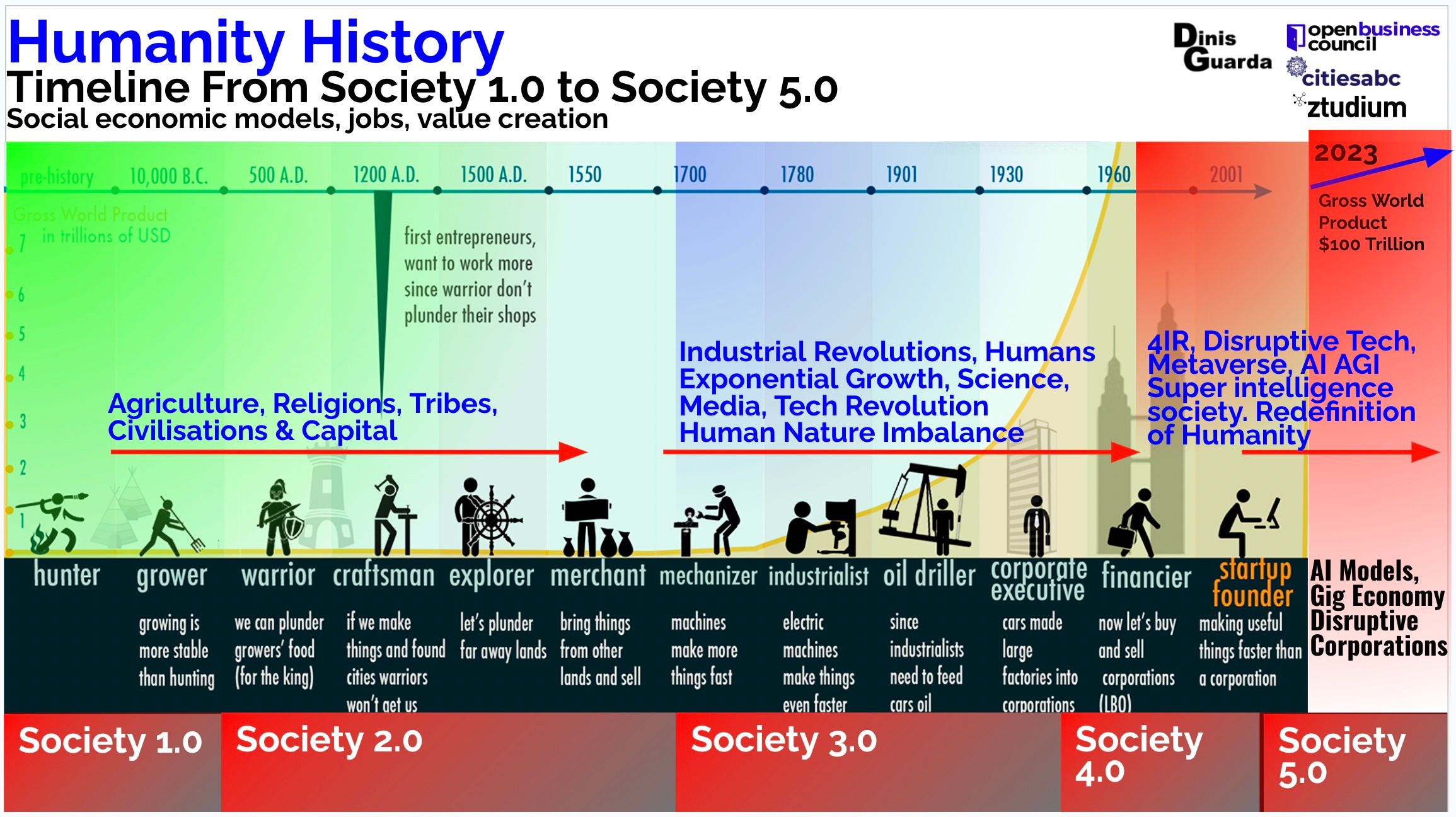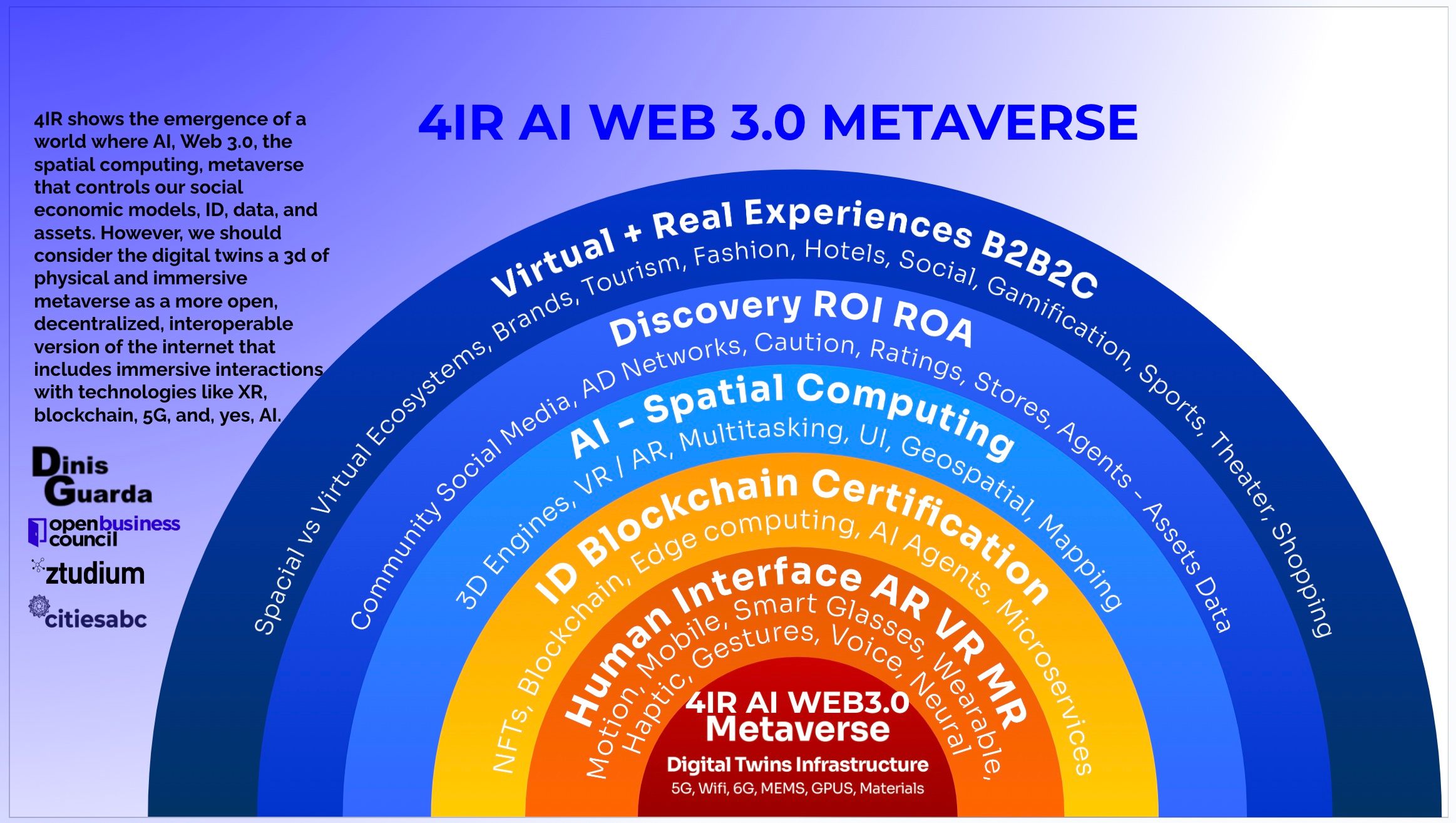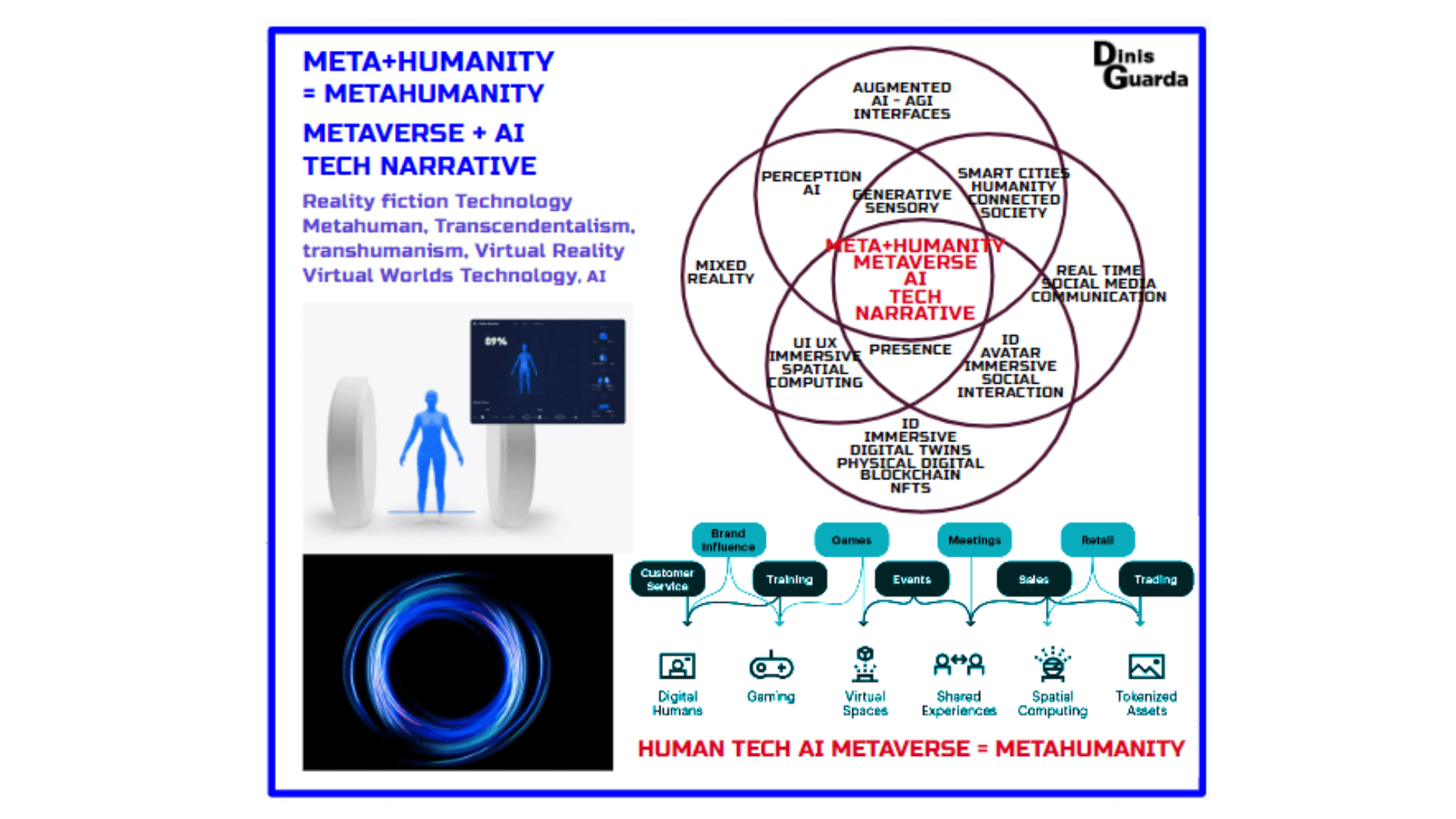technology
Metahumanity: Rethinking Humanity
31 Jul 2023, 1:53 pm GMT+1
Metahumanity envisions a future where we transcend our biological limitations through the integration of technology and human biology. And with the invention of the metaverse AI and its adoption, Metahumanity has the potential to become Humanity’s way of communication, doing business, playing, learning, humanity is faced with a new possibility of reinventing itself. Is humanity standing on the verge of a paradigm shift in its understanding of what it truly means to be human?
As English novelist Martin Amis said: “One of the real truths of the 21st century, and earlier, is that history is speeding up. We’re all on a sort of roller coaster now. There are existential threats that weren’t fully acknowledged not so long ago. We are sort of hurtling forward. It’s more of a task to ask people to slow down.”
The story of the evolution of humanity into metahumanity is a tale of relentless curiosity, innovation, and transformation. From mitigating the existential crises to the advent of the metaverse, human ingenuity has now resulted in rapid advancements in science, technology, and philosophy. This aspect of human nature has been consistently pushing the existing boundaries of knowledge and understanding, transcending into a limitless space.
Metahumanity is a concept that describes how humanity is developing itself, as it adapts to the challenges and possibilities that come with the reality of the Metaverse.
How is humanity interconnected to the metaverse?
Metaverse comes from a word that is made up with 2 words: Meta and verse. The prefix meta comes from Greek “beyond,” “after,” or “behind” and combined can also be added to “change, transformation, substitution. The English word transports one thing into another, linguistically; the Greek transports things physically. Verse, on the other hand, means “to turn” resulting from the latin word “versus” a line of writing. Verse is the same term used in “Universe”. It is based on the Proto-Indo-European “root wer”, meaning to turn or bend.
Now, let’s understand what humanity is.
The word humanity is from the Latin “humanitas” for “human nature, kindness.” Humanity can also refer to the kind feelings humans often have for each other.
Humanity is a collective term for the humans that inhabit this beautiful planet, Earth.
But there’s more.
It’s also a word for the qualities that make us human, such as the ability to love and have compassion, be creative, and not be a robot or alien.
Humanity is also a vision. It is a narrative of faith and hope residing in the values that holistically integrate intelligence, respect, kindness and forward-thinking for sustainable innovation and creative DNA.
“Let’s instead define life very broadly, simply as a process that can retain its complexity and replicate.” Max Tegmark
Humanity history

Human history is a narrative of change and change, where species have interacted and evolved with the world's natural ecosystem in the past, present, and also in the future.
History tells us that Humans evolved in Africa c. 300,000 years ago and initially lived as hunter-gatherers and evolved to Homo Sapiens and the present stage of development with the inception of advanced technologies and AI.
The major word of our times: the powerful concept “technology” comes from two Greek words, transliterated “techne” and “logos”. “Techne” is a Greek word that means art, skill, craft, or the way, manner, or means by which a thing is gained. “Logos” means word, the utterance by which inward thought is expressed, a saying, or an expression.
The way humans dream, imagine and create virtual ideas, personalities, gods, angels and worlds is what we will look at and call Meta+Humanity = Metahumanity.
My point is that Metahumanity is what is preparing itself as the new iteration of Humanity. And the Metaverse is what is preparing that iteration.
Human Augmentation and Transcendentalist Impulses
Throughout history, humanity has always looked at ways to transcend itself. These efforts that Nick Bostrom, highlights as transcendentalist impulses have been expressed at least as far back as the quest for immortality in the Epic of Gilgamesh, as well as in historical quests for the Fountain of Youth, the Elixir of Life, and other efforts to stave off ageing and death.
All these concepts have been ways to imagine senses, ideas, create new worlds, and through all those kinds of efforts, enable humans to somehow expand their vision, create new capacities and realities. Religious personalities, poets, writers, Sci-Fi authors have been working on this set of concepts and ideas since the dawn of humanity.
Since the 19th and early 20th century, human creativity has advanced concepts of integrating mythological visions, new immersive technology, and innovative ideas, leading to the broader idea of transhumanism.
Introduced by Julian Huxley in 1957, transhumanism advocates using current and emerging technologies like genetic engineering, AI, and nanotechnology to enhance human abilities and improve our condition.
The concept of Metaverse

The concept of the Metaverse represents an advanced embodiment of human transhumanism, where cutting-edge technologies create a sensory physical and mental system, augmenting multiple capacities in a post-reality universe. The term was coined by Neal Stevenson in his novel "Snow Crash" in 1992, depicting a virtual reality universe where users connect through goggles and earphones, influencing their physical selves.
The contemporary iteration of the Metaverse features human-augmented solutions, social, immersive VR platforms compatible with massively multiplayer online video games, open game worlds and AR, VR, MR collaborative spaces.
A modern literary reincarnation of the Metaverse is the OASIS, illustrated in the 2011 science fiction novel Ready Player One authored by Ernest Cline. OASIS is a massively multi-user online VR game that evolved into the predominant online destination for work, education and entertainment. It is an open game world, a constellation of virtual planets. Users connect to OASIS with headsets, haptic gloves and suits. Regarding education, OASIS is much more than a public library containing all the worlds’ books freely and openly accessible to citizens. It presents a techno-utopian vision of virtual online education. Hundreds of luxurious public-school campuses are arranged on the surface of a planet dedicated exclusively to K-12 education. Online school classes are superior in comparison to the grass-and-mortar schools as they resemble holodecks: Teachers take students for virtual field trips to ancient civilisations, foreign countries, elite museums, other planets and inside the human body. As a result, students pay attention, are engaged and interested.
Meta + humanity — Metahumanity

Metahumanity, a concept that I have explored in my upcoming book, delves into how humans must expand their intelligence, imagination, and emotional intelligence to adapt to evolving technology, including AI, machines, and the Metaverse. It examines how these advancements might lead to a reinvention of humanity, transforming the very essence of what it means to be human.
Karel Capek was a visionaire of what we are now starting to have in society when it comes to the vision of humans and machines. What Karel Capek saw in the 1920s with the second industrial revolution we are now getting in exponential scale with the 4IR the Fourth Industrial Revolution. Karel Capek “science fiction” works such as R.U.R The War of the Newts, and The Insect Play were super advanced visions of the world we are starting to live in. Karel Capek introduced the word “robot” to the languages of the world in his 1920s science fiction play R.U.R., which stands for Rossum’s Universal Robots.
The challenge we have now as humans is how Humanity and the artificial intelligence we created and are exponentially scaling with machines and digital systems. How can we cope and how can we manage our own exponential AI machine intelligence that was released?
This quote by Max Tegmark in the seminal book Life 3.0 explains the complexity and challenges when it comes to humans and machines:
“The robot misconception is related to the myth that machines can’t control humans.Intelligence enables control: humans control tigers not because we’re stronger, but because we’re smarter. This means that if we cede our position as the smartest on our planet, it’s possible that we might also cede control.”
And what it means to be humanity?
Humanity is about love, hate, conflict, peace and creativity in parallel with destruction while fostering ambition, desire, frustration and all things that comprehend the duality and contrast of each of us as humans.
Metahumanity, as a concept, prompts us to reconsider our existence and growth as humans, especially as the technologies we create surpass our intelligence and language capabilities, impacting innovation and creativity.
This idea raises fundamental questions about the essence of being human and the ethical, social, and cultural implications of human enhancement. Metahumanity represents an innovative game changer, urging us to redefine and disrupt our DNA and brains amid the rapid pace of technological advancements, blurring the boundaries between organic human minds and augmented artificial machine intelligence.
“What is tolerance? It is the consequence of humanity. We are all formed of frailty and error; let us pardon reciprocally each other’s folly — that is the first law of nature.” — Voltaire
Share this
Dinis Guarda
Author
Dinis Guarda is an author, entrepreneur, founder CEO of ztudium, Businessabc, citiesabc.com and Wisdomia.ai. Dinis is an AI leader, researcher and creator who has been building proprietary solutions based on technologies like digital twins, 3D, spatial computing, AR/VR/MR. Dinis is also an author of multiple books, including "4IR AI Blockchain Fintech IoT Reinventing a Nation" and others. Dinis has been collaborating with the likes of UN / UNITAR, UNESCO, European Space Agency, IBM, Siemens, Mastercard, and governments like USAID, and Malaysia Government to mention a few. He has been a guest lecturer at business schools such as Copenhagen Business School. Dinis is ranked as one of the most influential people and thought leaders in Thinkers360 / Rise Global’s The Artificial Intelligence Power 100, Top 10 Thought leaders in AI, smart cities, metaverse, blockchain, fintech.
previous
Copy Trading Made Easy: Exploring the Best Platforms for Social Trading
next
How to Get an EB-5 Visa in the US?